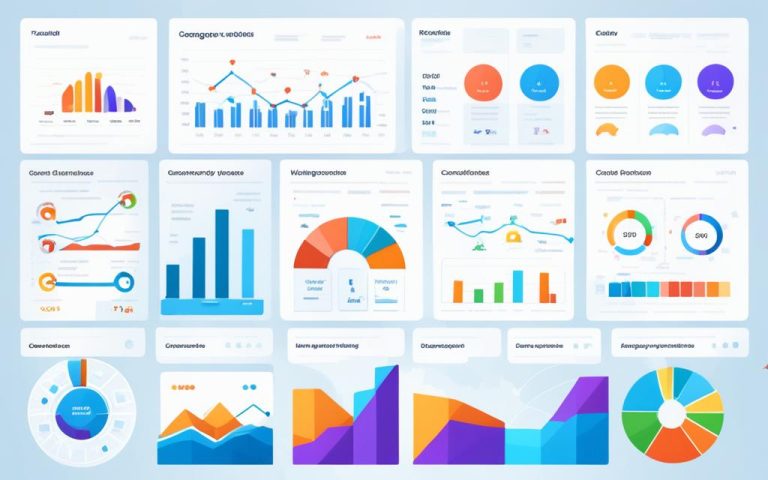Understanding Meta Keywords for SEO Success
Meta keywords have long been an integral part of SEO strategies, allowing webmasters to signal the relevance of their content to search engines. Placed in the HTML head section of a webpage, these keywords were once a significant factor in search rankings across major search engines.
However, over time, the misuse and outdated nature of meta keywords have led to their diminished importance in search engine algorithms. Rather than benefiting your website’s search rankings, incorporating meta keywords may even act as a spam signal, revealing your keyword strategy to competitors.
Instead, it is recommended to focus on other crucial elements of SEO, such as optimizing your title tag and meta description. These meta tags play a more significant role in influencing how your pages appear in search results and can influence click-through rates.
In this article, we will explore the current state of meta keywords in SEO, their impact on search rankings, and how to optimize them effectively for SEO success.
Do Meta Keywords Still Matter for SEO?
Meta keywords have been a longstanding aspect of meta tags used in website optimization for search engines. However, their relevance and impact on search rankings have diminished over time. While meta keywords are no longer considered a direct ranking factor, they still serve several important purposes in the realm of SEO.
One of the primary functions of meta keywords is to provide context to search engines. They help search engines understand the main topics and themes present on a webpage, aiding in the matching of relevant search queries. Although search engines now rely on more sophisticated algorithms and contextual analysis to determine page relevancy, meta keywords can still play a role in providing initial context.
Beyond providing context, meta keywords also play a role in guiding content creation. By acting as a starting point for aligning the page’s content with user search intent, meta keywords can help optimize the overall relevance and quality of the content. This alignment ensures that the page addresses the needs and interests of the users, thereby enhancing search performance.
Additionally, monitoring which meta keywords generate traffic and conversions can provide valuable insights into the search behavior of the target audience. By studying the performance of various meta keywords, website owners can gain visibility into the topics and keywords that resonate with their audience. This information can inform content creation strategies and help refine keyword targeting for greater search performance.
“While meta keywords may no longer be a direct ranking factor, they still offer valuable insights into user search behavior and can guide content creation strategies.”
It’s important to note that the effectiveness of meta keywords can vary depending on the search engine and its ranking factors. While some search engines may disregard meta keywords entirely, others may still consider them to a certain extent. Therefore, it remains a best practice to include relevant and specific meta keywords, but the emphasis should be on providing high-quality, valuable content that addresses user needs and aligns with search engine algorithms.
Illustrative Example:
Let’s consider a fictional example of a website focused on healthy recipes. The meta keywords used on the website’s pages could include terms such as “healthy recipes,” “easy cooking,” “nutritious meals,” and “meal planning.” Although these meta keywords may not directly impact search rankings, they provide an initial indication of the website’s main topics and themes to search engines. This information helps search engines understand the content and match it with relevant search queries related to healthy recipes.
Summary:
In summary, while the significance of meta keywords for search rankings has diminished over time, they still serve a purpose in SEO. Meta keywords provide contextual information to search engines and guide content creation strategies. By monitoring their performance, website owners can gain valuable insights into user search behavior and refine their keyword targeting. While meta keywords are no longer a primary ranking factor, they remain a part of a holistic SEO strategy aimed at providing valuable content and aligning with user search intent.
| Purpose of Meta Keywords | Relevance in SEO |
|---|---|
| Provide context to search engines | Diminished, but still valuable to some extent |
| Guide content creation | Relevant for aligning with user search intent |
| Insights into search behavior | Valuable for understanding audience preferences |
Optimizing Meta Keywords for SEO Success
Despite their reduced impact on search rankings, meta keywords can still be valuable in an SEO strategy. By following optimization best practices, you can make the most of meta keywords and enhance your website’s visibility in search results.
Focusing on Quality over Quantity
When selecting meta keywords, it’s important to prioritize quality over quantity. Instead of using a long list of generic keywords, focus on a few highly relevant and specific keywords that accurately represent the content of your page.
Placing Primary Keyword at the Beginning
To effectively target search queries, place your primary keyword at the beginning of the meta keywords list. This signals to search engines the main topic or theme of your page and improves the chances of it appearing in relevant search results.
Incorporating Variations and Long-Tail Keywords
Consider incorporating variations and long-tail keywords into your meta keywords list. This helps capture a wider range of search queries related to your content and increases the chances of attracting targeted traffic.
Natural Integration into Page Content
Avoid keyword stuffing and ensure that your meta keywords are naturally integrated into the text and overall content of your page. This improves the user experience and prevents search engines from penalizing your website for spammy practices.
Regular Review and Update
As search trends and your website’s content evolve, it’s essential to regularly review and update your meta keywords. By staying informed about the keywords that generate traffic and conversions, you can fine-tune your SEO strategy and align it with user intent.
Remember, while meta keywords may not have the same impact they once had, optimizing them according to best practices can still contribute to your overall SEO success.
| Optimization Best Practices | Benefits |
|---|---|
| Focus on a few highly relevant keywords | Increases relevance in search results |
| Place primary keyword at the beginning | Enhances visibility for targeted queries |
| Incorporate variations and long-tail keywords | Captures a wider range of search queries |
| Naturally integrate keywords into page content | Improves user experience and prevents penalties |
| Regularly review and update meta keywords | Aligns with evolving search trends and user intent |
Conclusion
In conclusion, meta keywords may not be a direct ranking factor for search engines, but they still have a role to play in SEO success. On the other hand, meta descriptions have a significant impact on click-through rates (CTR) and indirectly affect search rankings. By writing compelling meta descriptions that accurately summarize the page’s content and incorporate relevant keywords, you can improve user engagement metrics such as CTR, bounce rate, and time on site.
Regularly reviewing and updating both meta keywords and meta descriptions is crucial to ensure they align with current search trends and user expectations. As part of your SEO strategy, prioritize the optimization of these elements to enhance your website’s visibility and attract more relevant traffic. Remember to focus on quality rather than quantity when it comes to meta keywords, using highly relevant and specific keywords that naturally integrate into your content.
By incorporating these SEO best practices, you can optimize your meta keywords and meta descriptions to not only improve search performance but also create a better user experience. By accurately representing your page’s content in search results, you increase the likelihood of attracting your target audience and encouraging them to click through to your website, ultimately driving more conversions and achieving your SEO goals.
FAQ
What are meta keywords?
Meta keywords are specific meta tags located in the HTML head section of a webpage that contain a list of keywords representing the page’s content for search engines.
Do meta keywords still impact search rankings?
No, major search engines largely disregard meta keywords due to misuse and consider them outdated.
What is the potential harm of using meta keywords?
Using meta keywords can potentially harm your SEO efforts as they may be seen as a spam signal and reveal your keyword strategy to competitors.
Are there other important meta tags to focus on instead of meta keywords?
Yes, it is recommended to focus on more important meta tags, such as the title tag and meta description, which can impact how your pages appear in search results and influence click-through rates.
What purposes do meta keywords serve despite their reduced impact on search rankings?
Meta keywords provide context to search engines, help them understand the main topics and themes of a webpage, and guide content creation.
How can I optimize meta keywords?
To optimize meta keywords, focus on quality over quantity by using a few highly relevant and specific keywords. Place the primary keyword at the beginning of the meta keywords list and consider incorporating variations and long-tail keywords.
How should I integrate meta keywords naturally into the page’s content?
Avoid keyword stuffing and ensure that the keywords are naturally integrated into the page’s content.
How often should I review and update my meta keywords?
Regularly review and update your meta keywords to reflect changes in search trends and your website’s content.
Do meta descriptions impact search rankings?
No, meta descriptions do not directly impact search rankings, but they can influence click-through rates and indirectly affect search rankings.
How can I improve user engagement metrics with meta descriptions?
Writing compelling meta descriptions that accurately summarize the page’s content and incorporate relevant keywords can improve user engagement metrics like CTR, bounce rate, and time on site.
How important is it to regularly review and update meta keywords and meta descriptions?
It is important to regularly review and update both meta keywords and meta descriptions to ensure they align with current search trends and user expectations.














